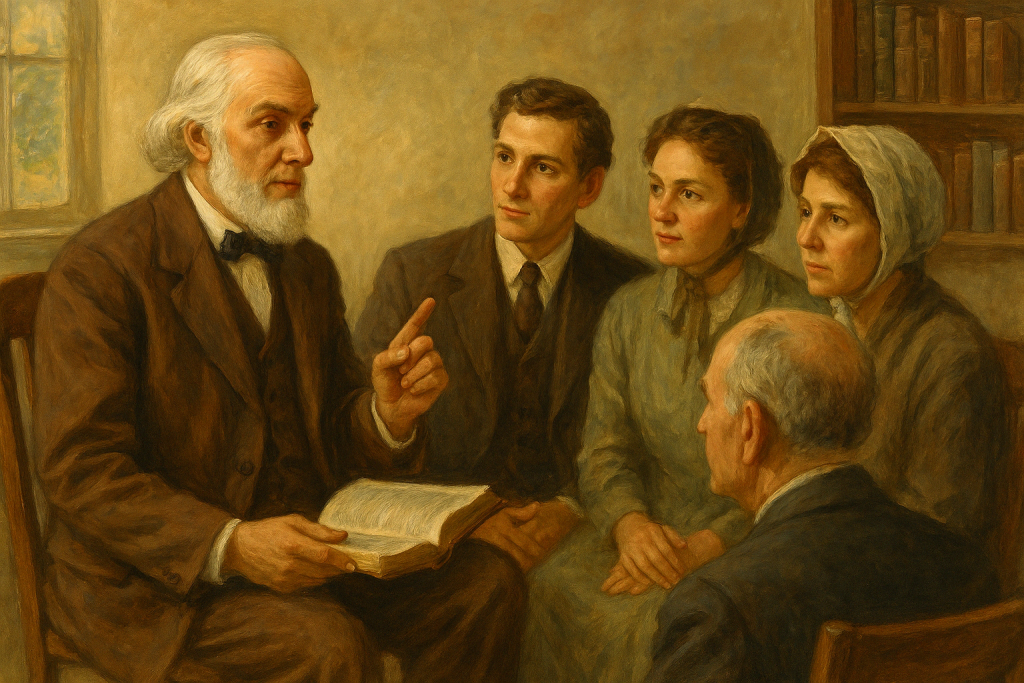
The roots of what is now known as Jehovah’s Witnesses trace back to the late 19th century in Allegheny, Pennsylvania (now part of Pittsburgh), where a small group of sincere Bible students gathered to study Scripture outside traditional church structures.¹ At the age of 18, Charles Taze Russell began hosting these meetings in 1870, motivated by spiritual doubts and a desire to resolve contradictions he saw in the teachings of the churches around him.²
Russell was particularly troubled by doctrines such as eternal torment in hell, predestination, and the Trinity—beliefs he felt lacked scriptural basis.³ In his own words, these teachings caused him to lose confidence in the Bible altogether until he encountered Adventist preacher Jonas Wendell, who helped reignite his interest in prophecy and Scripture.⁴ From this point forward, Russell dedicated himself to personal Bible study and formed a group committed to understanding the Bible on its own terms, free of creeds and traditions.
In 1879, Russell began publishing Zion’s Watch Tower and Herald of Christ’s Presence, a journal intended to share insights from their studies.⁵ To support this work, he helped establish the Zion’s Watch Tower Tract Society in 1881. It was officially incorporated in the state of Pennsylvania on December 13, 1884, with Russell as president.⁶ The stated purpose was to distribute Bible literature and promote Christian education.
Next, we welcome you to read more about Brother Charles T. Russell’s leadership from years 1879 to 1916 and his contribution to the organization.
[ Next Topic – Charles T. Russell Era ]
References:
- Watch Tower Bible and Tract Society of Pennsylvania, Jehovah’s Witnesses—Proclaimers of God’s Kingdom (Brooklyn, NY: Watchtower Bible and Tract Society of New York, 1993), 43–44.
- M. James Penton, Apocalypse Delayed: The Story of Jehovah’s Witnesses, 3rd ed. (Toronto: University of Toronto Press, 2015), 14.
- Watch Tower Bible and Tract Society, Proclaimers, 229.
- Tony Wills, A People for His Name: A History of Jehovah’s Witnesses and an Evaluation (Lulu Press, 2006), 42–45.
- Alan Rogerson, Millions Now Living Will Never Die: A Study of Jehovah’s Witnesses (London: Constable, 1969), 19–20.
- Watch Tower Bible and Tract Society, Proclaimers, 44.
